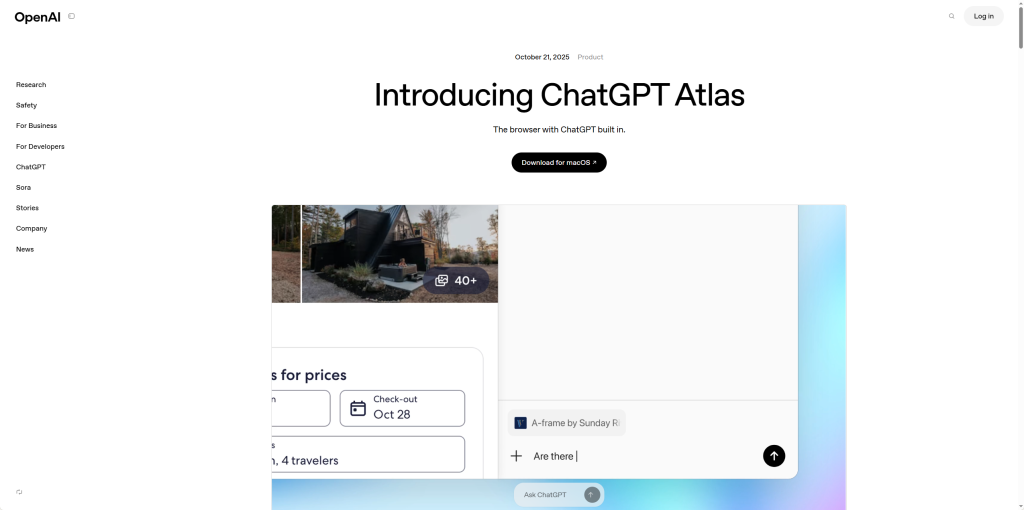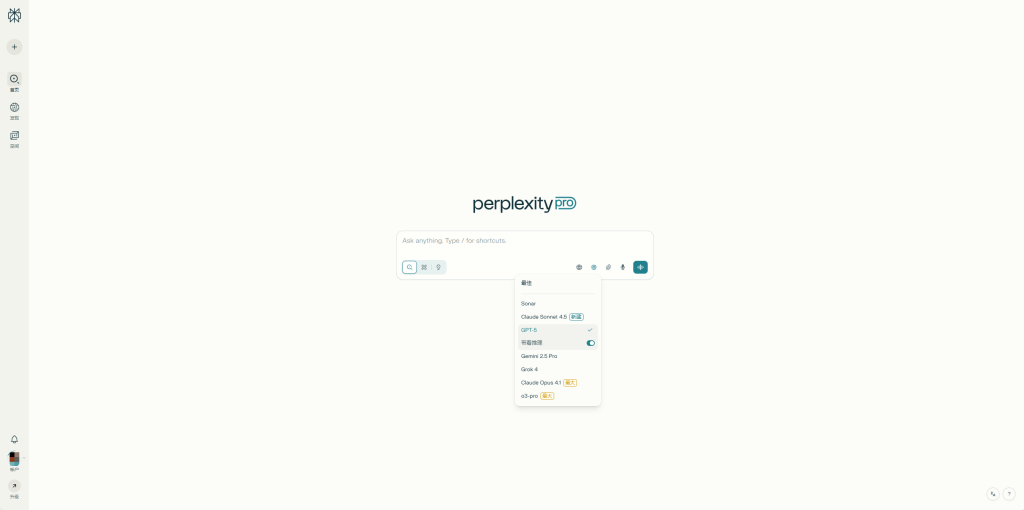Physical Address
304 North Cardinal St.
Dorchester Center, MA 02124
Physical Address
304 North Cardinal St.
Dorchester Center, MA 02124

From openai.com
OpenAI officially launched ChatGPT Atlas, its first AI-powered web browser, during a live event on October 21, 2025, directly challenging Google’s dominant Chrome browser. The browser is launching initially on macOS, with plans to expand to Windows, iOS, and Android platforms “soon,” according to the company’s announcement.
The release sent immediate shockwaves through the financial markets, with Alphabet (Google) stock dropping 4% on Tuesday as investors reacted to the potential threat to Google’s core browser and search businesses. Chrome currently holds an unprecedented 71.86% share of the global desktop browser market, serving approximately 3.45 billion users.

ChatGPT Atlas integrates OpenAI’s conversational AI directly into the browsing experience. It is powered by the company’s “Operator AI” agent, which can autonomously perform tasks such as booking restaurant reservations, filling out forms, and managing other browser-based activities.
Built on Google’s open-source Chromium engine, the browser aims to keep user interactions within a ChatGPT-like interface rather than requiring navigation to separate websites.
“This could mark a major shift in the browser and search engine wars,” said Art Hogan, Chief Market Strategist at B. Riley Wealth, noting the market’s instant reaction to OpenAI’s announcement. The browser represents OpenAI’s broader strategy to integrate its AI services into users’ daily digital workflows.

The launch of Atlas intensifies competition in the emerging AI browser market, as companies race to redefine web navigation with artificial intelligence.
Perplexity recently launched its free Comet AI browser, which previously required a paid subscription, while Google has integrated its Gemini AI model into the desktop version of Chrome.

Despite its $13 billion investment partnership with OpenAI, Microsoft has opted not to build its own standalone AI browser. Instead, it is focusing on evolving Edge into what CEO Mustafa Suleyman calls a “true agent-browser.” This complex relationship between Microsoft and OpenAI faces growing tension as OpenAI expands its business beyond Microsoft’s Azure cloud services.
Entering the browser market allows OpenAI to access valuable user data that underpins Google’s advertising empire. This move could potentially disrupt the revenue stream that contributes nearly 75% of Alphabet’s total income.